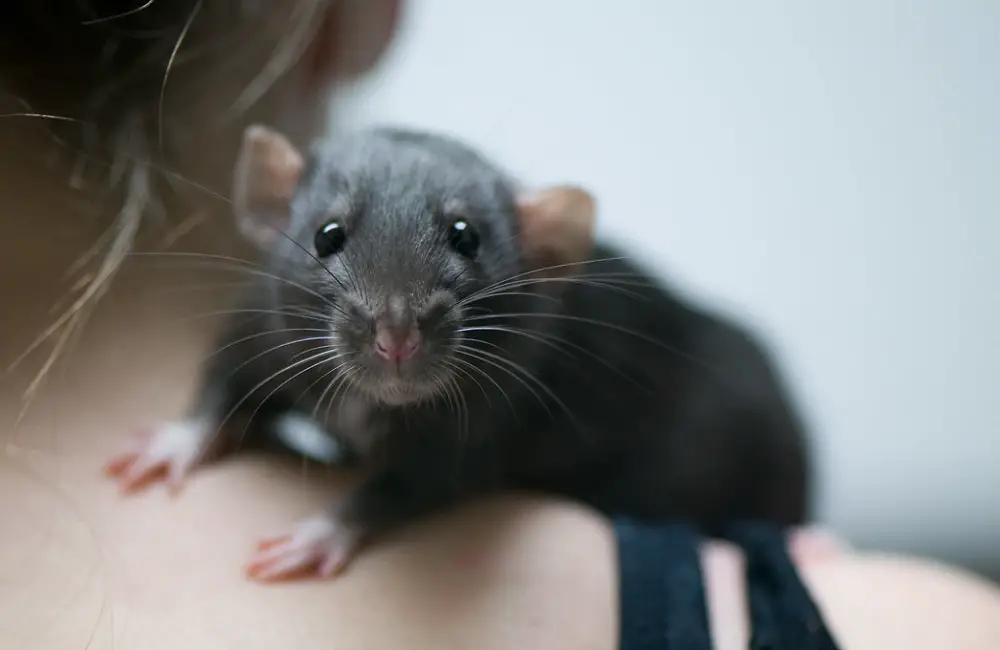Rats are generally curious rodents. They will eat anything they find and do not hesitate to try out new foods. They can eat meat, grains, glue, and even soap.
So why do rats eat soap? If the soap contains animal fat, rats will most likely eat it. Soaps are not toxic to rats unless taken in large quantities. That is why generally, rats will eat soap and not be harmed.
Some common questions have been answered in this article. Read on to find out!
Related Article: Do Rats Make Noise When They Die
Do Rats Like To Eat Soap?
Rats are known to eat things that contain animal fat. Many soaps contain animal fat as a core product. To answer the question “do rats like to eat soap?” no, they do not. Fragmented soaps cannot repel rodents. Since rats like to eat pretty much everything they find in their path, they often eat soaps too.
Is Soap Toxic To Rats?
Soap is toxic to most animals. When we talk about rats or mice, soap is toxic to these rodents but only if ingested in large quantities. Small quantities will not hurt them or drive them away. Therefore, using soap as a repellent will not yield any positive results.
What Will Happen To Rats If They Eat Soap?
Rats eat almost anything they find. Outdoors in the wild, they can live off seeds, leaves, stems, roots, caterpillars, larvae, and other insects. Rats can also survive on crumbs. When we talk about indoor rats, they love to eat foods that have high quantities of fat, protein, or sugar.
They also eat seeds and grains. They are known to eat chocolate, nuts, and even butter. They will willingly eat glue and even soap if it is made from animal fat.
How To Avoid Rats From Eating Your Soap?
Some people believe that the smell of soaps can ward off rodents such as rats and stop them from inhabiting indoor places. So, can soap be used as a repellent? There is no concrete evidence that gives proof about any brand using soap as an ingredient and playing the part of an effective repellent.
Researchers from the University of California Davis and San Diego observed that one of the ingredients of soap, triclosan, has adverse effects on rats. They were exposed to this chemical for six months.
As a result, they developed liver tumors that were induced by the chemical. However, it is important to note here that this experiment was carried out in a controlled, laboratory environment and not under regular, real-world conditions.
Thus, there is no solid evidence that soap can be used as a repellent or used to prevent rats from eating soap.
Does Soap Keep Rats Away?
This is a common misconception. Soap does not help keep rats away. Some people believed that fragmented soap could keep rats away. But this is also not true. The myth about fragmented soap came from the idea that since rats eat animal fat, which is a primary ingredient in most soaps, they can consume fragmented soaps.
Therefore, ingesting a small amount of soap will not harm the rat. And it is unlikely that a large infestation of rats will be harmed by small quantities of soap. They would have to eat a significantly large quantity of soap to be impacted in any way.
Is Soap Good Bait For Rats?
Some people claim that they have successfully used soap to repel rats. Although this claim is not supported by scientific evidence. If you wish to give it a try, you may do so. But do not use the soap from your soap dish.
Your best chance of using soap to repel rats is using a fragmented soap that has a strong smell. Some rats avoid strong-smelling deodorant soap, although it is unclear why they do so. Cut the soap into pieces and place it in areas that rats like to hide in such as basements, attics, and small hidden spaces.
My Pet Rat Ate Soap, What Should I do?
Generally, soap is not toxic for rats unless taken in large quantities. If you feel the soap is dangerous, you can give it dry food. This will help absorb and neutralize the ‘poison’ in the soap. You can give it regular food such as crackers and rice disks. Take it to a vet and seek medical help.
Other Reasons Why Rats Eat Soap
Rats are known to have unrollable appetites. They can eat food equal to one-third of their total body weight every day. Rats are omnivores, meaning they can eat both meat and plants. They can eat soap, grains, fruit, eggs, vegetables, leather, poultry, meat, and even other rodents.
Rats can eat seeds, grains, crumbs, pet food, bird seeds, and even uneaten or spoiled food that we throw out in the trash. Their food preference is meat, grain, and feed given to livestock. Rats also like to hoard food. This often leads to infestation by insects.
How To Keep Rats Out?
Rats like to hide in any small place they find. Their first hiding spot is in plants and vegetation. So, try to trim your plants and keep your garden clean. This will ensure there are no food bits or hiding places that rats may breed or take shelter in.
Try to leave some space between your house and garden/plants so that the rats do not invade your home. Rats like to hide under piles of wood, appliances, furniture, and cars, and even in trashcans. Make sure to take out the trash every day. Keep your woodpiles well away from your home.
Check around the borders of your house to make sure there are no holes or points of entry that rats could use to get in. Check for gaps in windows, doors, wiring, and pipes. Check your basement at night and look for spaces between walls or gaps that might show signs of rats entering your house.
Close any gaps you find using tin, cloth, metal, or wire mesh. Make sure no bricks are missing from fireplaces and chimney areas. Replace bricks if any are found missing to fill the gaps.
The attached garages can be potential break-in points for a rat. This is because there is a lot of gaps between the doors as the doors do not fit as tightly as other doors. Once a rat makes its way into an attached garage, it will likely stay there for a while.
Therefore, you have to make it feel less attractive to a rat. This can be done by minimizing hiding spots and looking for holes. Do not keep your trash in the garage and if you do, use containers with tight lids. Do not leave trash bags either.
Check windows and doors and identify any holes and gaps. Fill in the gaps if you find any. Check for holes in screen doors also.
Rats need water to survive. Any water puddles will act as a water source for rats, and they will get sufficient water for drinking. Make sure there are no leaks inside your home. Any areas around your home that have depressions must not be holding water.
Cover swimming pools, hot tubs, and make sure your air conditioner is not leaving behind a puddle of water. Check your water hose and see that it does not leak water. Do not leave behind water in the birdbath either.
Some food that attracts rats is pet food, fruits, dog feces, bird seeds, garbage, and berries. Look around and see if you have any of these food sources in your yard or garage. When rats cannot find food to eat, they will leave the place themselves.
Make sure there are no honeycombs either, as rats can easily feed off these combs and survive. If you feed birds or squirrels, make sure to not leave food behind. Remove their food containers once you have fed them until you have cleared away all rats.
Your garbage should be kept in metal trainers with tight lids that cannot be opened easily. Do not leave trash bags outside your house as this will attract rats. Do not compost meat, fats, bones, oils, or dairy waste. If you keep a dog, remove its feces from the yard or garden as rats come after this too.
Final Thoughts
Rats can eat anything they find. They are naturally curious creatures and omnivorous. Rats are known to eat soaps, especially those that contain animal fat. Consuming soap is not toxic to a rat if taken in small amounts. Large amounts of soap can be harmful to rats. Some people have the misconception that soap can be used to repel rats.
However, this is not true. There is no scientific evidence to prove this. So, this method cannot be used to repel rats. Take the services of a professional exterminator and check for potential gaps and holes around your house. In short, soaps are not toxic for rats.




